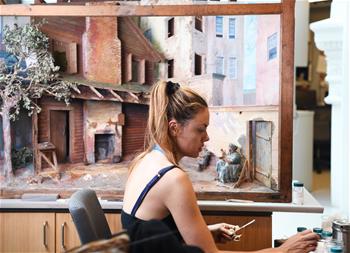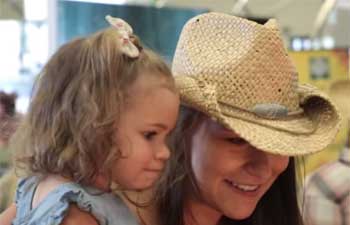CHICAGO, July 19 (Xinhua) -- A research led by Washington University School of Medicine in St. Louis indicates an investigational therapy for an inherited form of amyotrophic lateral sclerosis (ALS) extends survival and reverses signs of neuromuscular damage in mice and rats.
The researchers tested two such compounds, known as antisense oligonucleotides or oligos for short, in mice and rats. The animals were genetically modified to carry a mutated form of the human SOD1 gene.
Mice were given an anti-SOD1 oligo or a placebo at day 50, and a second dose about six weeks later. The mice that received the active drug maintained their weight 26 days longer and lived 37 days longer than those given the placebo, an increase in life span of 22 percent.
As a comparison, the researchers also tested the treatment in rats. Rats that received an active oligo fared much better than the ones that received the placebo. They maintained their weight more than nine weeks longer and survived eight to nine weeks longer.
By nine weeks old, mice that carry the mutant SOD1 gene are already showing molecular signs of deteriorating neuromuscular function. To find out whether the drug could reverse this decline, researchers treated 9-week-old mice with an anti-SOD1 oligo or a placebo. Muscle function steadily improved over the next eight weeks in the mice that received the active drug, while it continued to decline in the placebo group. A sign of neurological damage rose in both groups, but it rose more than twice as quickly in the mice that received the placebo than the ones given the active oligo.
About 20,000 people in the U.S. are living with ALS, also known as Lou Gehrig's disease. Patients with ALS have few options for treatment. Only two drugs have been approved by the Food and Drug Administration (FDA) for ALS, and both only modestly slow the course of the disease. Few people survive more than three years after diagnosis.
The findings were published July 16 in the Journal of Clinical Investigation.













